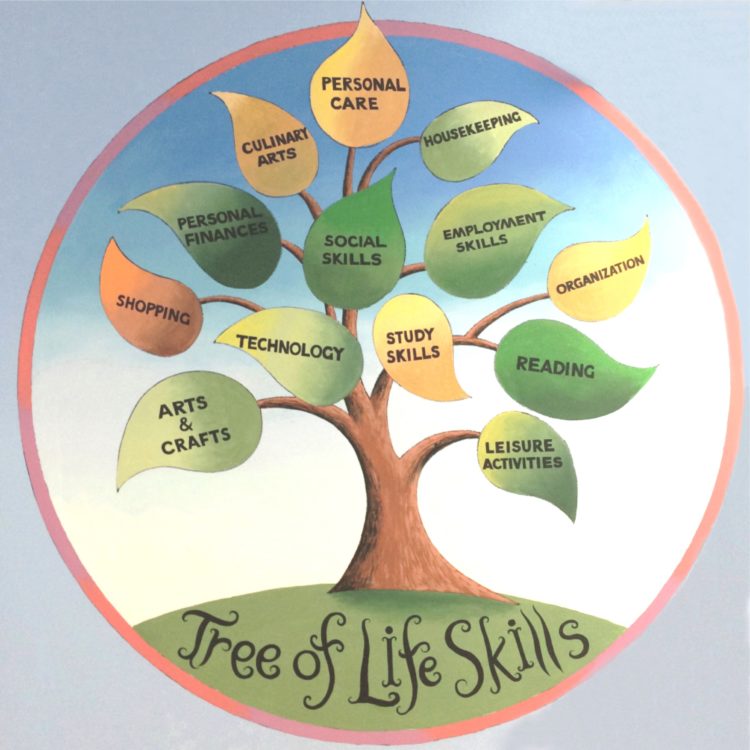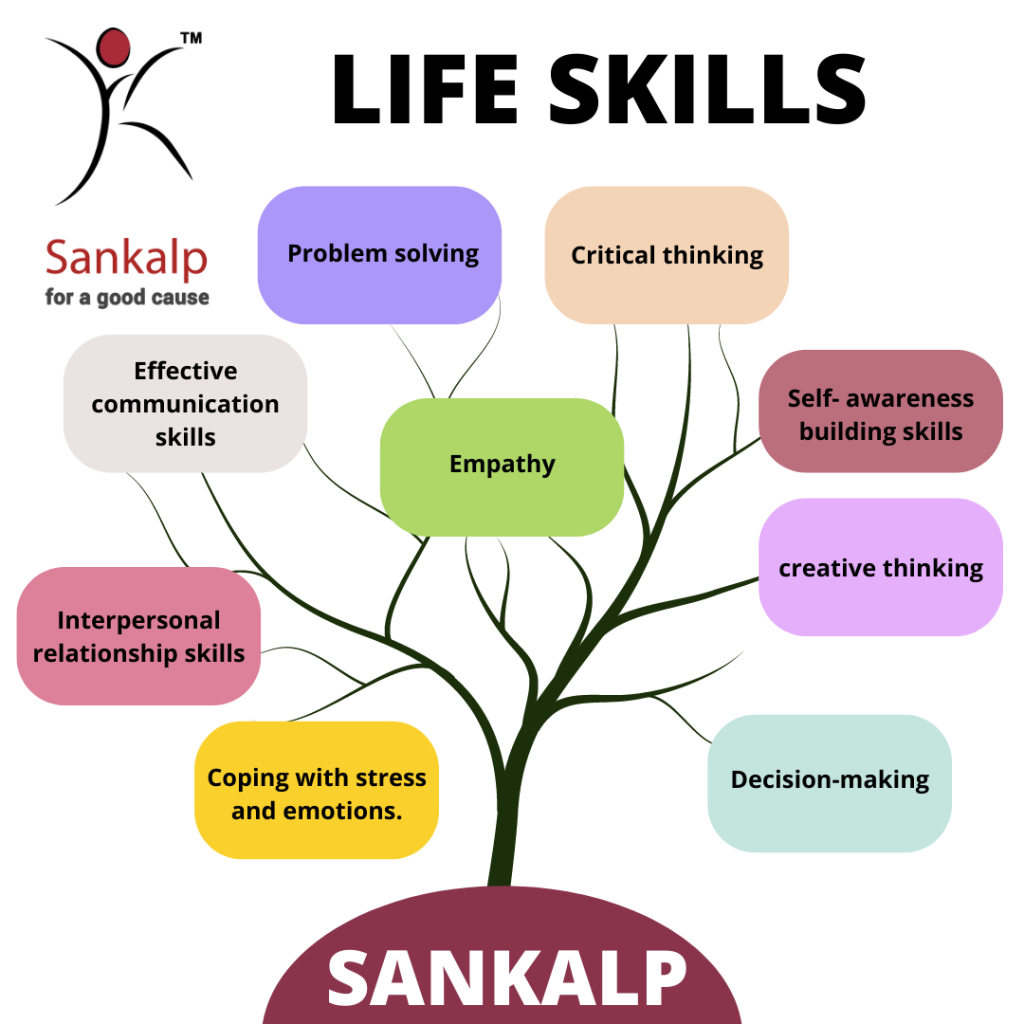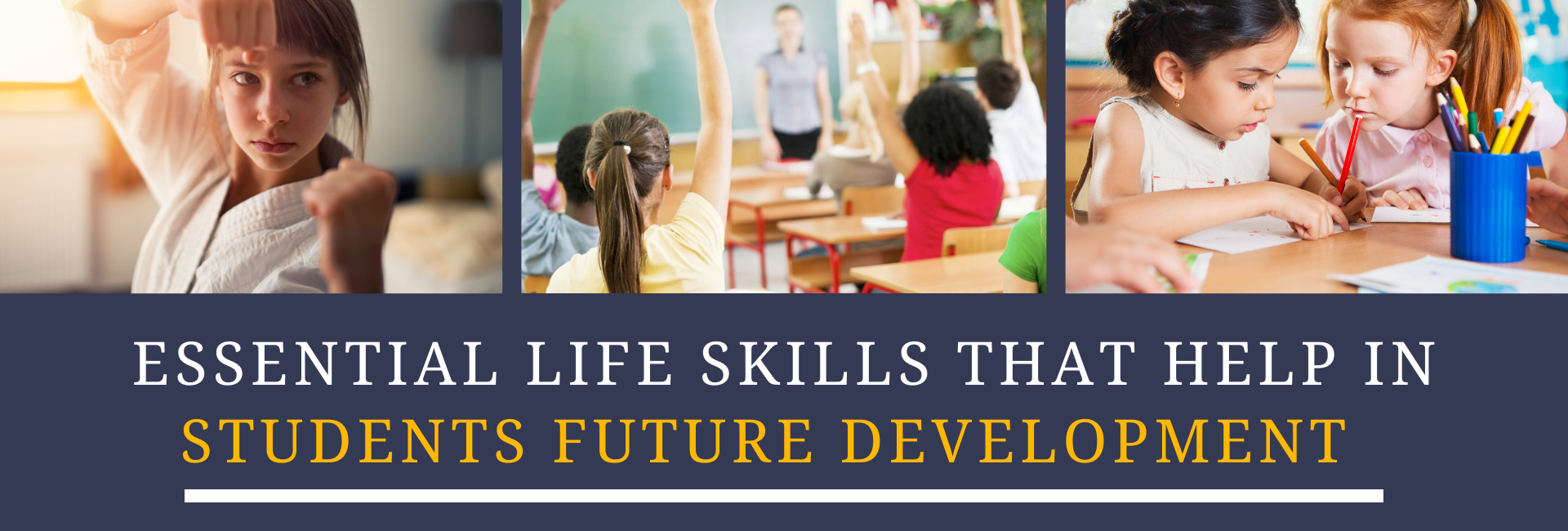Life Skills Education: Why It Matters & How To Teach It
What if education could equip individuals not just with knowledge, but with the very tools they need to navigate the complexities of life? Life skills education is emerging as a crucial paradigm shift, promising to empower individuals to thrive in all aspects of their existence, far beyond the confines of the classroom.
The concept of "life skills education" encompasses a broad spectrum of competencies designed to enable individuals to function effectively and successfully in various settings. It's about equipping people with the ability to adapt, make informed decisions, and handle challenges that arise in everyday life. This includes the practical, the interpersonal, and the intrapersonal aspects of being human. From managing finances to navigating relationships, and from critical thinking to problem-solving, life skills education seeks to provide a holistic approach to personal development.
The MS AAAS for Life Skills Development II, for instance, specifically targets secondary students with the most significant cognitive disabilities. The program's purpose is to ensure that these students receive individualized instruction tailored to the real world, focusing on the knowledge and skills needed to succeed beyond the school environment. Similarly, initiatives are emerging to weave life skills into the very fabric of high school education, recognizing their fundamental importance (Siagl, 2021). The goal is to build a foundation for students to build upon as they embark on their next journey.
- Kaitlyn Krems Leaks Unpacking The Controversy Impact Explained
- Lyna Perez Leaks What You Need To Know Latest Updates
Life skills education isn't just a singular subject; it's an umbrella term, encompassing a variety of essential skills. These range from practical competencies like grocery shopping and understanding nutrition, to budgeting and managing finances, and even exploring areas like textiles and design (Erjavek, 2021). It is also the development of soft skills like communication and problem-solving, that are critical for both personal and professional success. The integration of such a wide range of skills reflects a recognition of the multifaceted nature of human life and the diverse challenges people face.
The development of life skills is not just a matter for students; it is valuable for anyone looking to live an independent and fulfilling life. Programs aimed at helping clients develop life skills are becoming increasingly common, especially in contexts that aim to foster independence and empower individuals to participate effectively in society. This focus on enabling people to navigate their surroundings is a testament to the transformative potential of life skills education.
However, the success of such initiatives depends on the availability of appropriately trained educators. A study examining the ability of primary school teachers to support students in developing life skills revealed that many lacked the necessary competence to do so. This finding highlights the importance of providing educators with adequate training and resources to effectively deliver life skills education.
The introduction of life skills education aligns with a broader movement toward positive education that is challenging traditional educational paradigms worldwide. This approach goes beyond academic achievement and focuses on the overall well-being of individuals, encouraging a holistic approach to personal growth. Furthermore, several studies, like the one using SDT (Ryan & Deci, 2017) and Hodge et al.'s (2012, 2016) model for life skills development, show how the satisfaction of students' needs early in the school term can positively predict their later development of life skills. This demonstrates the potential of early interventions.
The Central Board of Secondary Education (CBSE) in 2005 introduced life skills education as an integral part of the curricula through continuous and comprehensive evaluation (CCE) for classes 6 to 10. The CBSE also developed life skills manuals for teachers teaching classes 6, 7, and 8. This indicates a growing recognition of the need to incorporate these skills into the educational framework. Furthermore, studies have observed that life skills improved through sports in high school students. The influence of sport on life skills development is now an emerging area of research.
The incorporation of life skills into education can also help youth achieve their desired future outcomes by addressing power structures and relations. Education is being reshaped to better incorporate life skills. This is essential for personal growth, as it gives people the tools they need to reach their goals and live successful lives. This kind of education is growing around the world, especially in places like France (101, 102). It is also a topic of increased research.
The benefits of learning life skills are far-reaching. Education in life skills helps students take responsibility for themselves. Moreover, it enables individuals to navigate their surroundings, and make informed choices. Research shows that a significant portion of adolescents possess a medium level of life skills (52%), while a smaller percentage exhibit high (25.7%) or low (22%) levels. This data emphasizes the need for interventions that address the varying levels of life skills among young people.
The classroom is an important setting for providing life skills instruction, and its implementation has been meticulously researched. According to Yadav P, Iqbal N (2009), imparting life skills as part of the curriculum has positive outcomes that have been proven through the literature reviews. Implementation as a training program is a popular approach, based on various previous research findings, over life skills. Many ways exist to integrate abilities and concepts based on the individual learning styles and needs of students. Professional development efforts for teachers are related to the MS AAAS for life skills development I and delivered in accord. This note aims to contribute to the ongoing discussion about the development of life skills education in India. Educators are now proposing that life skills be explicitly woven into school education by exploring evidence on why such skills matter and which skills are important for learning and future outcomes.
A novel idea is using mental health promotion among adolescents in schools using life skills education (LSE) and teachers as life skill educators. The NIMHANS model of life skills education program has been studied for its implementation and impact, and the program teaches young adults the necessary skills they need to live a more independent life, both in the home and workplace. Dedicated teams provide individualized support services and focus on improving the independent living, social, vocational, and educational skills needed to be successful and independent after high school.
Life skills education is not limited to formal schooling. It has applications in adult education, community development projects, and for children who do not attend school. Initiatives focused on life skills for psychosocial well-being are particularly important. Part I of this document provides an introduction to life skills for psychosocial well-being. Learning life skills helps young people understand who they are and what they want out of life. These are essential components of a good life.
In addition to cognitive skills, life skills education also equips individuals with the emotional and social intelligence necessary to navigate relationships, manage stress, and build resilience. Studies have shown that the average stress level of teenagers can be quite high, 5.8 on a 10-point scale. Life skills offer children important tools for development, such as independent thinking, how to socialize and make new friends, and how to take action in situations where their parents or teachers may not be around to help or intervene. By teaching students the emotional and social skills, they are prepared for success in school, at work, and in life.
The aim is to equip students with essential life skills, a vital step towards preparing them for success in school, work, and life. By prioritizing these skills, educational institutions, and communities are investing in the future of individuals, enabling them to become well-rounded, resilient, and successful members of society. Life skills education promotes personal development and supports individuals in reaching their goals.
- Steven Jay Russell Con Artist Prison Escapee The True Story
- Jameliz Benitez Smith Porn Watch Free Xxx Videos Clips Now

CEA School Tree of Life Skills CEA

Life Skills Education Sankalp

Life Skills Education In Schools